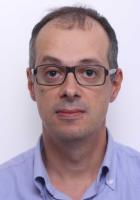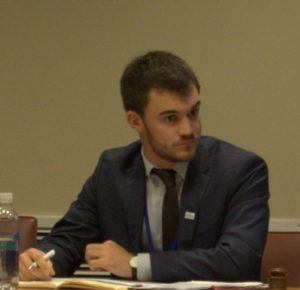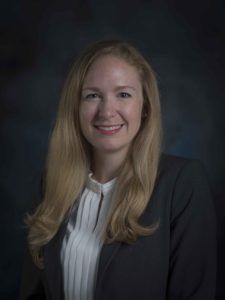As Phase I concluded in December 2017, the International Partnership for Nuclear Disarmament Verification (IPNDV, or Partnership) identified “testing and exercising potentially promising technologies and procedures” as a key next step. Exercises and demonstrations help the Partners further develop concepts and approaches identified within IPNDV. While these practical activities are not conducted with a specific treaty or political arrangement in mind, they allow IPNDV member countries to investigate potential tools for nuclear disarmament verification and identify aspects of those tools that need more attention.
This September, IPNDV partners will carry out two activities. The first, a Belgian-led technology demonstration, will assess methods to detect the presence or absence of nuclear material and to distinguish weapon grade from civil grade nuclear material. The second activity, a Nuclear Disarmament Verification exercise called “NuDiVe” focused on a specific aspect of a simulated nuclear warhead dismantlement is being hosted in Germany jointly by German and French teams. Both activities will involve multiple IPNDV partner countries.
Below, three IPNDV members discuss their involvement in planning and organizing the upcoming technology demonstration and exercise, why they think these are important, and their hopes for the outcomes of these events.
 Alessandro Borella, Ph.D., is a Senior Researcher for SCK•CEN, the Belgian Nuclear Research Center, which is hosting the Belgian-led technology demonstration.
Alessandro Borella, Ph.D., is a Senior Researcher for SCK•CEN, the Belgian Nuclear Research Center, which is hosting the Belgian-led technology demonstration.
What is your involvement in the IPNDV?
I joined the IPNDV during Phase I in 2016 and participated first in the “Technical Challenges and Solutions” and later in the “Technologies for Verification” working groups. Over the years I made available my expertise in non-destructive measurement methods for the purposes of the verification of nuclear material in a disarmament context.
Tell us about your demonstration. For example, who is involved and why did you and your colleagues at SCK•CEN think it was important to take this on?
Thirty people from 10 countries will be involved in the technology demonstration, or measurement campaign. At SCK•CEN we have the availability of well-characterized nuclear material that allows us to study the performances of measurement methods with respect to differences in composition, mass, and shielding materials. This availability is quite rare nowadays and the type of material aligns with what the IPNDV is working on. The measurements will be carried out in highly secured settings which also are typical of a real-life disarmament verification scenario.
What are you most looking forward to?
I’m particularly looking forward to the measurement campaign because it is the result of a team effort at SCK•CEN by people from different institutes. Specifically, the preparation of the measurement campaign is very challenging given the needs associated with the implementation of safety and security at the facility, as well as the logistical aspects associated with hosting 10 measurement teams and their equipment. Given the number of teams, the measurements will take place on a tight time schedule. This makes the coordination work even more important.
What do you expect to come out of this demonstration? What would be next steps?
The measurement campaign will result in experimental data taken in well-defined measurement configurations.
This data will allow us to address questions, for example, about the confirmation of the presence or absence of a nuclear weapon, or about the possibility to distinguish nuclear material meant for civil purposes from the material deployed in a nuclear weapon.
We envisaged that data will be available within the IPNDV community for further analysis. The lessons learned from this exercise will help others to better select technologies to be used in future disarmament scenarios.
 Alexandre Quinet is a Policy Officer for Nuclear Disarmament under the Directorate General for International Relations and Strategy of the French Ministry of the Armed Forces.
Alexandre Quinet is a Policy Officer for Nuclear Disarmament under the Directorate General for International Relations and Strategy of the French Ministry of the Armed Forces.
What is your involvement in the IPNDV?
France has been involved in the IPNDV since its beginning in 2015, and I personally got involved in the initiative in 2017. The verification of nuclear disarmament is a very valuable subject for building confidence and understanding between nuclear weapon states and non-nuclear weapons states. In this regard, we highly value the quality of the work undertaken at IPNDV. The French delegation gathers relevant expertise from the Ministry of Foreign Affairs, the Ministry of the Armed Forces, and the Atomic Energy Commission.
Tell us about NuDiVe. Why did the French team think it was important to examine Step 8 (dismantlement)?
Two years ago, Germany and France decided jointly to create a field exercise, within the time frame of the IPNDV Phase 2. The NuDiVe exercise was therefore built within the frame of our respective national involvements in IPNDV. The exercise will be conducted in Germany at Forschungszentrum Jülich. We decided to focus on Step 8 (the dismantlement phase within the IPNDV framework) for several reasons. First, it is the crucial moment during a disarmament process when the chain of custody has to be broken temporarily in a way that does not hamper the confidence of inspectors. Second, this is also the moment when non-proliferation and national security concerns are at the highest. Last, this phase has not been explored by previous international exercises. A quick clarification on the way we apprehended step 8: the exercise does not simulate the physical dismantlement of a nuclear warhead, but rather the inspection procedures needed to ensure the non-diversion of fissile material (absence measurement) during dismantlement.
What is your particular involvement in the NuDiVe exercise?
The input of the French team as a whole was to provide the perspective of a nuclear weapon state, adding realism to some features of the scenario, inspection procedures, and modalities. As a nuclear weapon state, we were able to help build the exercise in line with real-life practices and constraints.
What are you looking forward to about this exercise?
The aim of the NuDiVe exercise is not to create a “one-size fits all” model for verification. Any future treaty will have to define its verification provisions during negotiations. The aim here is to further our knowledge of what needs to be considered to verify dismantlement while respecting non-proliferation, safety, security obligations, and other national security constraints. I therefore expect participants to test the procedures we imagined to see how relevant they are, and to benefit from their input; a specialized evaluation team will also be tasked to critically assess the exercise, in order to draw the most valuable lessons.
What do you expect to come out of this exercise? What would be next steps?
Two reports will be published: an inspection report from the inspection and host team, and an evaluation report from the evaluators’ team. I believe these documents will be valuable deliverables for the disarmament community, and I hope that that participants will benefit from an interesting experience that will create more knowledge on nuclear disarmament verification. We expect NuDiVe best lessons to be useful for future phase(s) of IPNDV: enrich our collective understanding, build new tabletop or in-field exercises.
 Alicia Swift, Ph.D. is a Program Manager within the Nonproliferation and Arms Control Research and Development Group at the Y-12 National Security Complex in Oak Ridge, TN.
Alicia Swift, Ph.D. is a Program Manager within the Nonproliferation and Arms Control Research and Development Group at the Y-12 National Security Complex in Oak Ridge, TN.
What is your involvement in the IPNDV?
I have recently become involved with the IPNDV, starting with the Phase II IPNDV working group meeting held in Helsinki in March 2019. I have been participating through my support of the Nuclear Disarmament Verification (NuDiVe) exercise, which is planned for Sept. 23-27, 2019, in Jülich, Germany.
What are your reactions to the Partnership’s work moving from “paper to practice” in this second phase?
I think that moving from “paper to practice” is very helpful for exploring topics that were solely conceptual discussions during IPNDV Phase I. Hands-on activities often aid with learning, as well as with locating gaps and strengths, with the additional benefit of further cementing working relationships between participants.
What is your involvement in the NuDiVe exercise?
Because of my past experience with planning, executing, and evaluating arms control/disarmament exercises, such as the LETTERPRESS exercise held by the Quad Nuclear Verification Partnership in October 2017, I have had a minor role as an advisor during the planning stages of the NuDiVe exercise. As such, I attended a dry run in June in Jülich, Germany, which went extremely well and certainly demonstrated the hard work and expertise of France and Germany in the planning process. I will also participate in the exercise as a member of the Evaluation Team, which will be responsible for writing a report at the conclusion of the exercise.
What are you looking forward to about this exercise?
I am very excited about working with international partners to explore nuclear verification concepts and technologies, particularly those pertaining to chain of custody. I think there will be a number of good outcomes and lessons learned for IPNDV and the broader global community.
What do you expect to come out of this exercise? What would be next steps?
I think outcomes will include an increased understanding by the exercise participants of some of the nuances associated with verification approaches for nuclear weapon dismantlement activities, thus informing recommendations for possible future research in nuclear disarmament policy and/or technology. Next steps could include work for IPNDV Phase III, such as exploring equipment authentication and certification, or work for scientists to adapt existing technology and/or develop new technology.
More about the SCK•CEN demonstration and the NuDiVe exercise will be published on IPNDV’s website as it becomes available. Read more about the IPNDV’s recent Joint Working Group Meeting in Utrecht here. IPNDV Partners will meet again for a Plenary session in Ottawa, Canada at the end of 2019.



